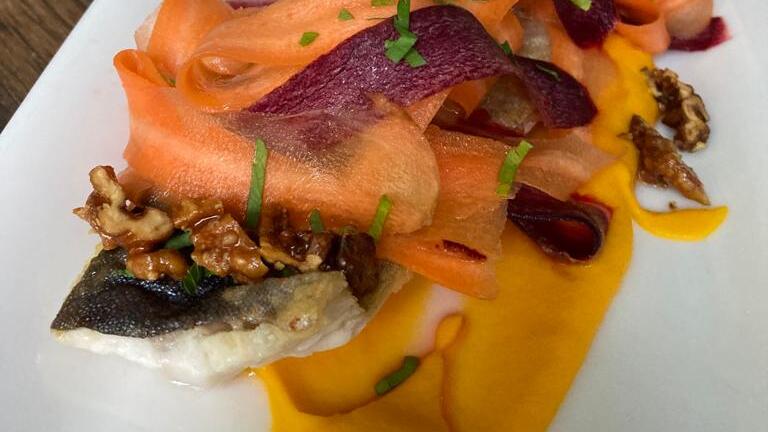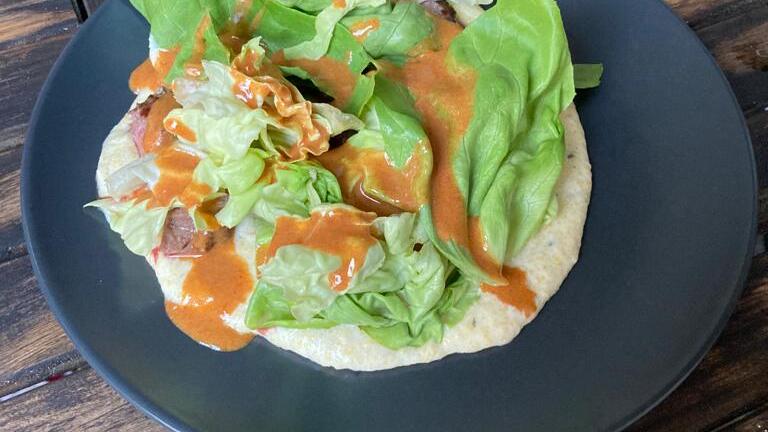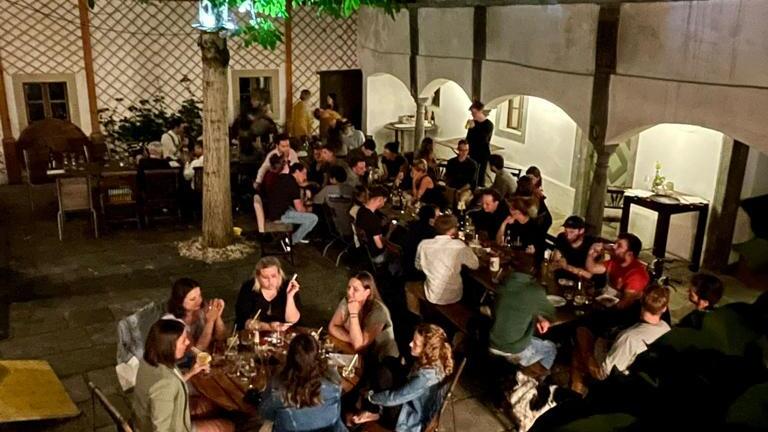Who divides the food on the plate in the middle of the table into four equal portions? This unusual question needs to be clarified in the Gasthaus WeberBartl in the center of Grieskirchen before you can have your first meal ( Bean hummus with broccoli for 11.10 euros) of the seven-course menu (a total of 99 euros for four people).
“Yes, everything is a bit different here, we want to surprise our guests, so we don’t serve the dishes individually, but on a shared plate,” explains Augustin Spiegelfeld. Together with his two friends Florian Schmidt and Florian Jenner, he started the WeberBartl inn project in May of this year. “Until October, we will spoil guests every week from Thursday to Sunday with our unusual and extremely regional menus and drinks,” says Spiegelfeld.
Upper Austrian, down-to-earth and yet refreshingly different – the project of the three young men, who know each other from the tourism college in Bad Leonfelden, can best be described with these keywords.
From sparkling pear wine (4.50 euros), which we enjoyed as an aperitif, to the pork belly (12.10 euros), which was served with kohlrabi, to the tasty one char (18.40 euros), which we found under carrot vegetables and caramelized walnuts, all the ingredients came from the immediate vicinity of the pop-up inn.

The culinary winner of the menu – everyone at the table agreed – that was it fallow deer fillet (21.60 euros) from Spiegelfeld’s garden. Meat can hardly be more tender. He pleasantly surprised us sweetness Bulgur with the strawberries (6.40 euros) as dessert. We didn’t find the presentation of the dishes quite as seductive as the taste.

Weber Bartl
Category: Country Inn
Address: Roßmarkt 21, 4710 Grieskirchen
Telephone: 0664/133 17 17
Closing day: Sunday-Wednesday
Homepage: www.weberbartl.at
Accessibility: yes
Ratings: 4 out of 6 cooking spoons
By the way: Even the name of the “WeberBartl” pop-up restaurant, which will be open for a total of 66 days, has a regional influence: Weberbartl is the name of an old apple variety from St. Marienkirchen that Bartholomä Reiter from the Weberhaus is said to have cultivated in the 18th century.
Source: Nachrichten




